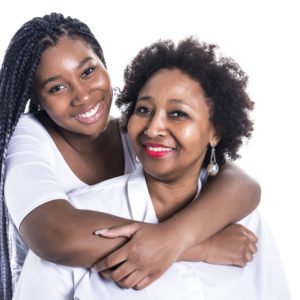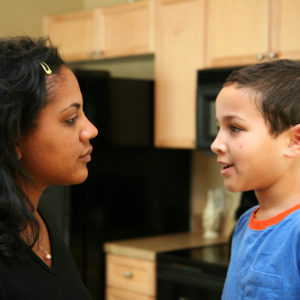Many of us parents don’t adequately discuss periods with our daughters because we simply don’t know how.
A few years back I attended a mother/daughter puberty class with my oldest daughter at our local hospital. Even there, the brief discussion about periods produced a palpable change in the atmosphere. Everyone got uncomfortable. Many of the girls looked around the room as if thinking, “When is this part going to end?”
But talking about periods doesn’t need to be uncomfortable, and the key to making that shift is normalization. If you can have discussions about important life topics like these early and often, your children will come to understand them as natural facts of life that aren’t to be feared.
And as this article puts it, “Remember that young children don’t naturally bring the sort of shame that’s usually brought by the adult.”
Here are some guidelines to help make discussing periods easier for you and your daughter.
The right time to talk about periods
Girls can get their periods as early as 8 years old, though that’s atypical. Most girls will get their periods around age 12 and menstruation typically starts two years after breasts begin to develop. That said, it’s critical to have the period discussion with your daughter before puberty so that she knows how her body will change before she’s confused or caught off guard.
KidsHealth says, “By the time they’re 6 or 7 years old, most kids can understand the basics of periods.” So, rather than saving period education for one big, sit-down moment, learn to capitalize on teachable moments. For example, when you see commercials about pads or tampons while watching television with your daughter, use that opportunity to ask if she knows what those items are. An organic moment like this is a less intimidating way to start the discussion than to say, “We need to have a talk.”
The younger your daughter is, the more open she is to ask questions about the human body. So, if you can satisfy her curiosity in an age-appropriate way, she’ll absorb whatever parts of your message she’s ready for or able to understand. Your willingness to answer her questions reinforces that her body is safe to discuss.
The right way to do period education
Take a moment to think of all the euphemisms that describe a woman’s period: That time of the month, on the rag, shark week, etc. And that’s just the tip of the iceberg. Ever hear “the curse?” That’s a particularly sad one. While periods are inconvenient, they’re a natural fact of life that signifies a woman’s body is ready for reproduction. That doesn’t sound like a curse to me.
While all these ways to describe periods exist, it’s critical to speak about them plainly without skirting the issue. Calling a period what it is tells your daughter that it’s not a thing to be feared, ashamed of, or hidden. She will understand it’s a normal thing to talk about.
Period shame is a very real phenomenon and it prevents girls from getting the help and information they need. “The stigma and taboo around periods is creating a wall of silence, with girls struggling to understand their own bodies, and feeling too ashamed to speak out when they think there’s a problem,” says Tanya Barron, chief executive of Plan International UK.
In any discussion you’re having about periods, use plain language and be straightforward. Conversely, don’t sugarcoat the experience as that won’t serve your daughter either. Last, in addition to discussing the biological “whys”, spend more time focusing on the practical side of things. Mayo Clinic says these are the usual questions:
- What is menstruation?
- When will it happen?
- How long does it last?
- Does it hurt?
- What should I do?
- Will everyone know that I have my period?
Even if you follow the experts’ advice, these conversations still aren’t easy. There’s a lot to remember and it’s hard to know where to start, even when your kids are the ones asking you the questions. That’s exactly why we created the Penny Pack, to help you get started.






